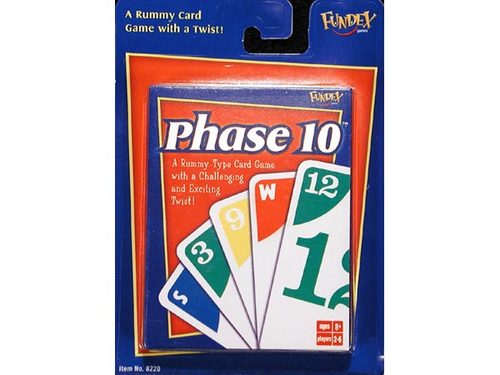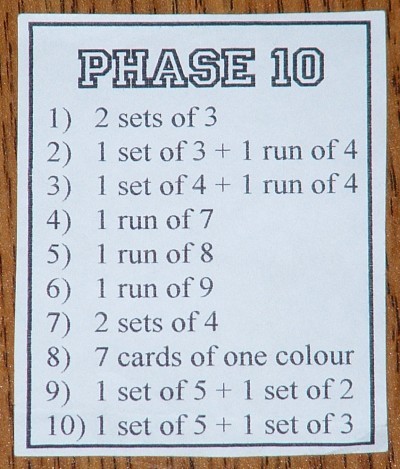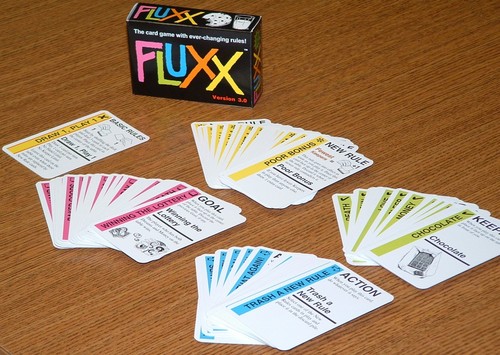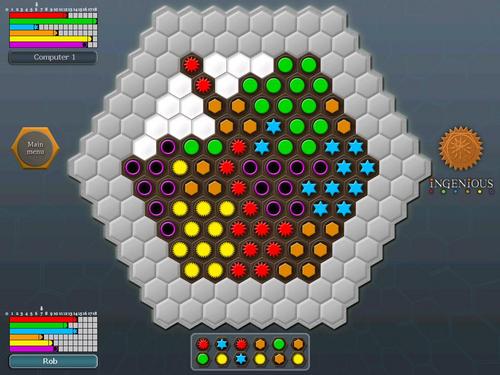
I try not to be a snob, but it isn't easy. None of the people in my social circle share my love of research so it is tempting for me to pull a "Well, actually . . ." on them. When my family hears the song "Hallelujah", all they think of is the movie Shrek. It is so much more than that, but I just bite my tongue.
What does this have to do with boardgames? I only have a few people to play games with, so I don't want to alienate them with my game snobbery. When one of ABM's best friends was excited to share a game called Phase 10

Before I share my final opinion of the game, let me give a brief overview of the rules for those who have never played. Phase 10 is a deck of of cards in 4 different colors, numbered 1 through 12. There are also Wild cards and Skip cards. Each player gets 10 cards and on your turn you draw a card and discard a card. The goal is to complete each of the 10 phases, which are rummy-style combinations of cards. Everyone starts at Phase 1, which is 2 sets of 3 matching cards (such as three 3s and three 12s). You can't put down your phase on the table until you have it completed. Once you have completed your phase, you just discard a card when your turn comes around. When someone has no more cards, the round is over. Cards still in your hand are added to your score, which is bad because lowest score wins if there is a tie at the end.
OK, did I like this game? I would have to give a qualified "yes". It is a step up from Uno, and I think it is a good introduction to rummy-style games. I wouldn't mind adding this game to the mix of other light games that we tend to play. However, it does run a little long for me. Although I don't always agree with the recommendations on BGG, I have learned to take heed if several users say that a game outstays its welcome. We played using the Master edition rule that says you can work on the phases in any order, and it still felt like a long game to me. If we had played with the original rules (you must complete phase 1 before you can work on phase 2), then I think it would have added at least 30 minutes to the game. Since the adults don't get together to play that often, we try to play a mix of games. Long games like this are a downer for me on game night, but I wouldn't mind playing it on a Sunday afternoon with the kids.



